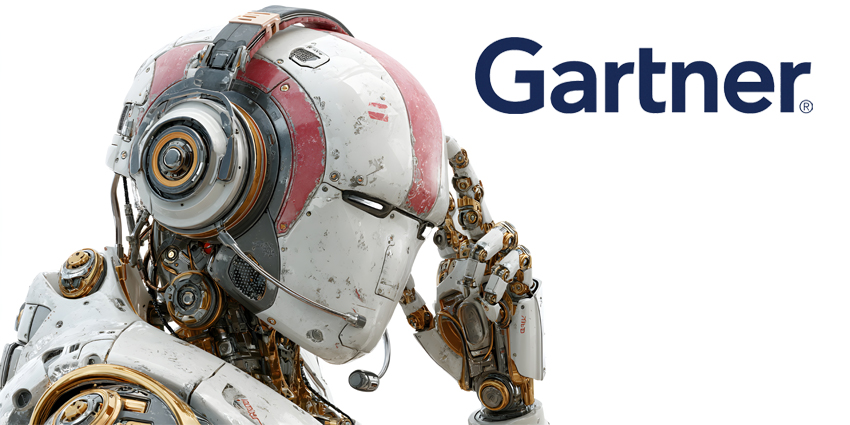A Gartner Survey has revealed that half of CEOs either have or intend to implement a strategy for machine customers in the next two years.
Gartner VP Analyst Don Scheibenreif discussed the findings on an episode of ThinkCast.
Scheibenreif detailed how the survey’s findings showed that CEOs are increasingly acknowledging that machines will play an active role in making purchasing decisions, describing it as a “pleasant surprise.”
But what exactly are machine customers?
Scheibenreif defines the tech as “a non-human economic actor that obtains goods or services in exchange for payment.
“So, essentially, we are delegating the things that we do as human customers to a machine.”
In a customer service and experience scenario, an example might be a digital assistant that calls a customer service channel on behalf of a human.
Although the technology has existed for a while, recent AI advancements have made it far more effective for customer service and experience.
However, Scheibenreif is quick to emphasize that ‘machines’ are not limited to digital assistants, as he explains:
“When I use the term ‘machine,’ it could be a robot, your Roomba at home, it could be a vehicle, or a virtual AI agent.”
Passing over the amusing yet slightly terrifying image of a Roomba calling up your bank while giving the living room a quick vacuum, Scheibenreif’s wider point appears to be that the ubiquitous nature of AI is increasingly automating more aspects of our lives, making machine customers a natural next step in the customer service evolution.
The VP Analyst specifically outlined advancements in GenAI and agentic AI during the interview, suggesting that companies need to embrace the probability of having to deal with more and more machine customers or risk falling behind:
We’re entering a world where your best customers may actually not be human, and that’s different for a lot of people. They’re kind of still trying to wrap their heads around it.
Why Businesses Shouldn’t Overlook Machine Customers
For what has the potential to be a serious factor in businesses’ customer experience and service offerings, machine customers still seem to fly somewhat under the radar.
A little over two years ago, Gartner predicted that by 2026, machine customers will account for 20 percent of all service team interactions.
While there is no official data on whether or not this forecast is likely to come to fruition, generally speaking, vendors appear to be surprisingly quiet about the tech.
With the bulk of discussions and strategies still focused on using automation to solve existing queries, companies risk not being adequately prepared to handle machine-to-machine interactions.
One vendor that appears to be bucking this trend is Google, which recently launched its “Ask for Me” feature.
The experimental tool – currently available via Search Lab – allows Google Search users to have an AI agent call businesses on their behalf.
Interestingly, the company followed this release by announcing a new AI chatbot that can answer calls, process requests, and manage conversations independently, only escalating to the user when necessary.
In doing so, Google has the opportunity to position itself as a pioneer in machine-to-machine customer service.
The topic was discussed earlier this year in an edition of the Big CX News Show, where Shelly Kramer, President and CEO at Kramer & Company, described it as a “huge opportunity” for Google.
“There is an opportunity for Google to do this right and to really leverage its reputation in the search area,” she explained.
They have a huge opportunity here, but as we’ve talked about before, sometimes Google does a great job on that front and sometimes Google doesn’t.
While not quite as optimistic as Kramer, Cavell’s Senior Research Analyst, Finbarr Begley, was also enthusiastic about Google’s tools, saying:
“The moment I can talk to my phone and get it to fill out a request at my bank to cancel a standing order, rather than going through customer service myself, we’re kind of winning.”
However, he cautioned that Google’s future growth in machine customer technology will hinge on its ability to deliver value across broader, real-world applications, not just within niche markets.
How accurate Gartner’s predictions end up being isn’t that important. Given the sheer speed and scale at which AI is advancing, it seems inevitable that machine customers will start to play a significant role in the customer service and experience space.
For vendors operating in a highly saturated market, this presents an opportunity to differentiate themselves and stake a claim as the industry leader in machine customers.







